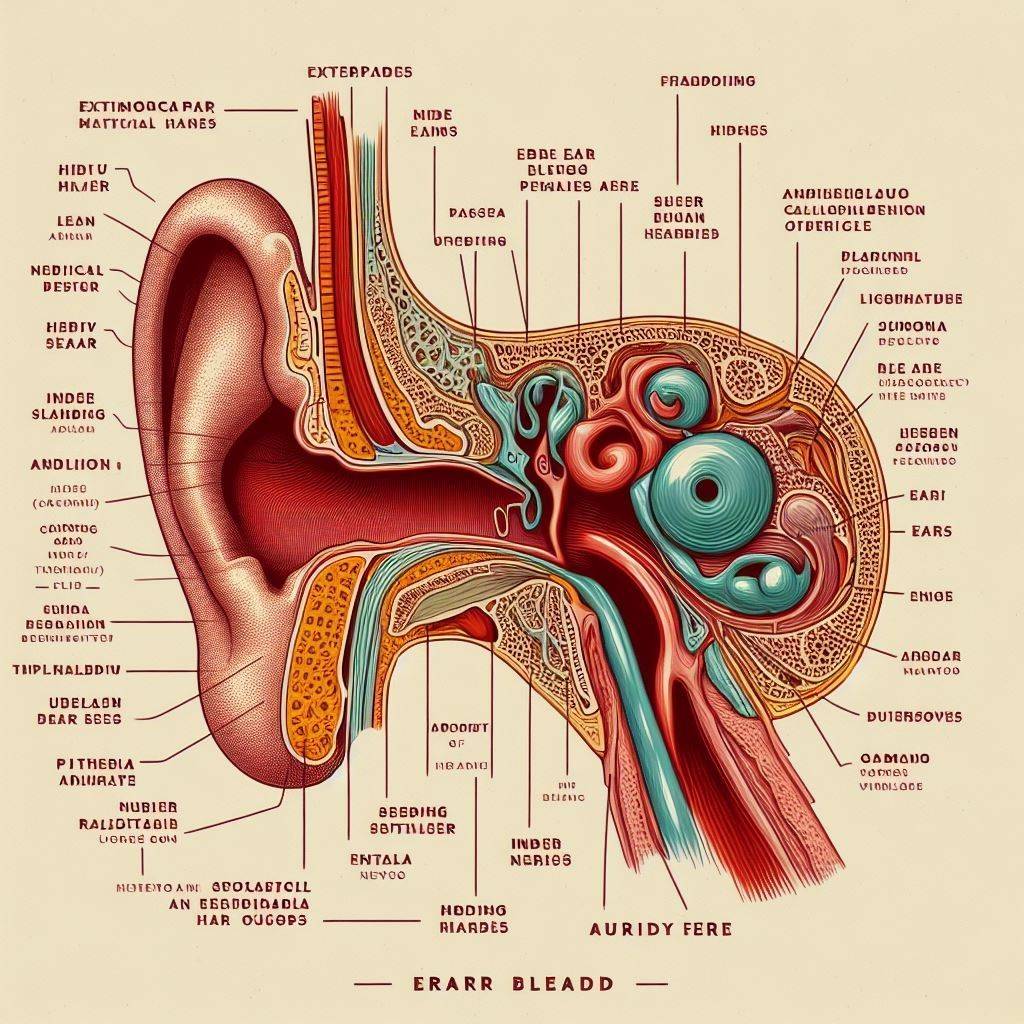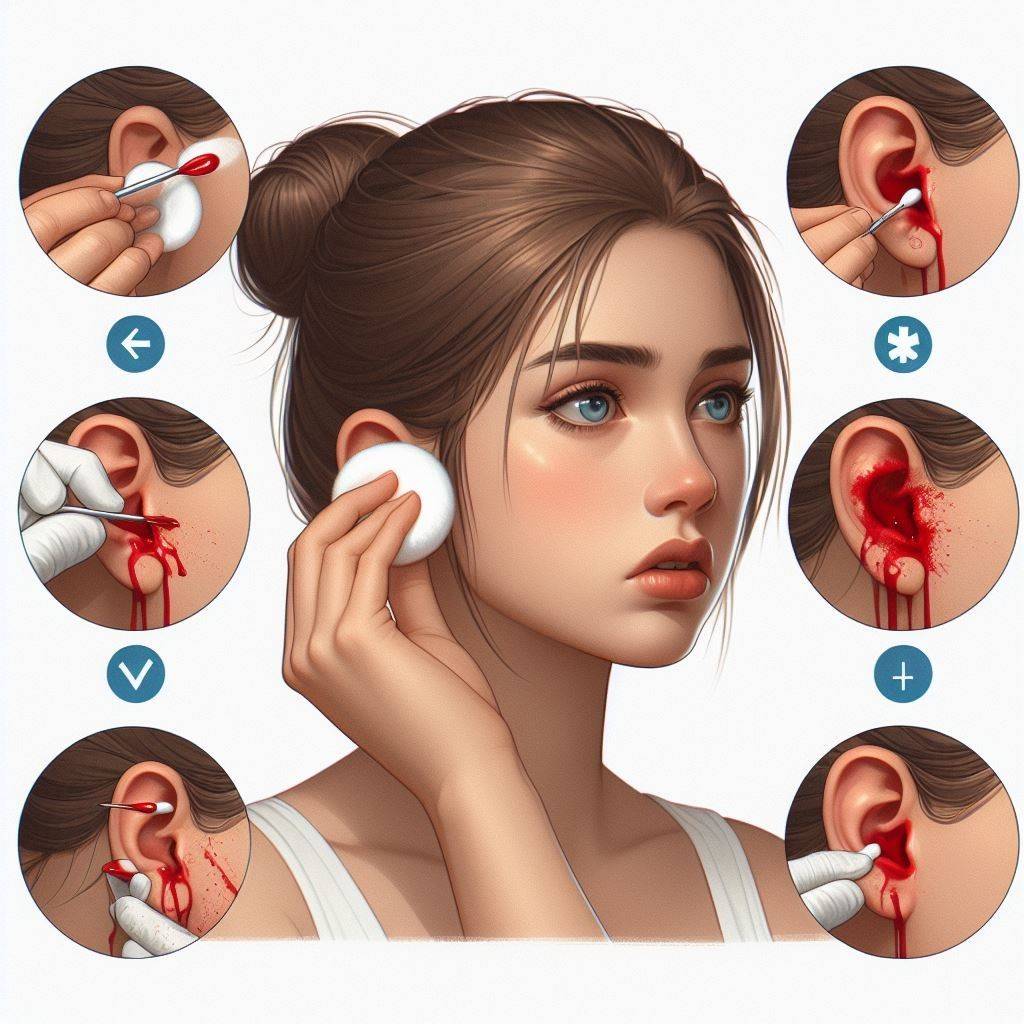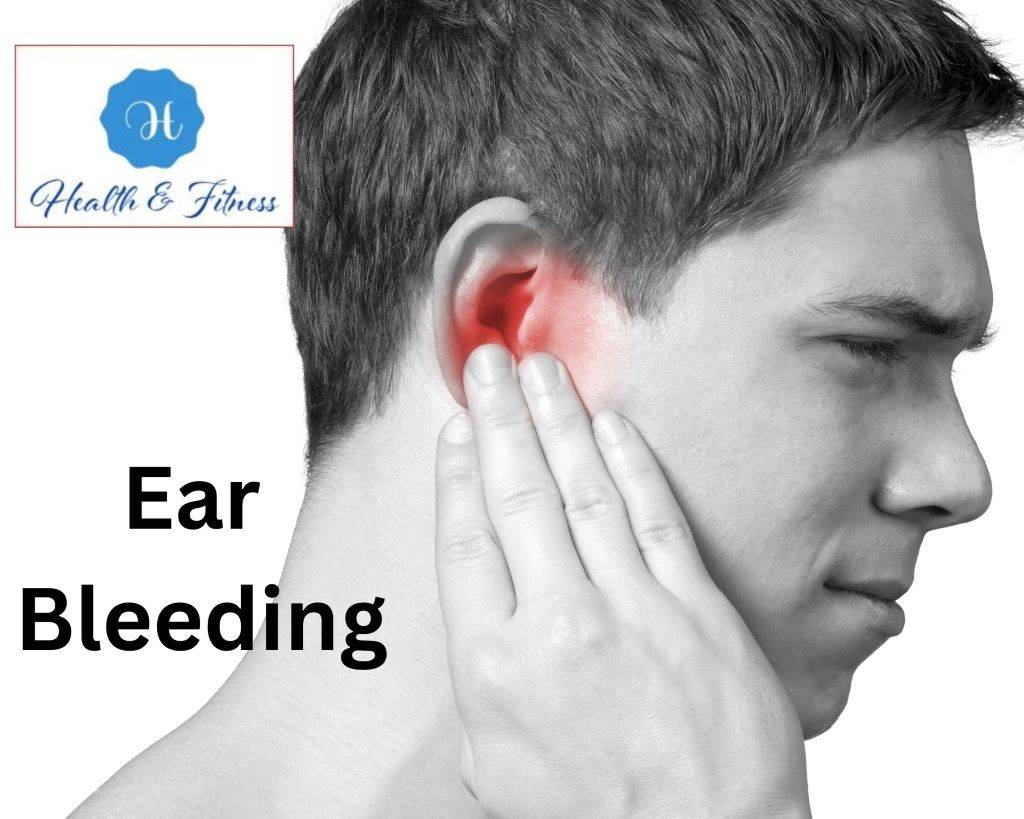Ear Bleeding: A Comprehensive Guide to Prevention and Treatment
Unravelling the Mystery of Ear Bleeding and How to Keep Your Ears Healthy
Ear bleeding can be a distressing and alarming experience for anyone. Understanding the potential causes, prevention strategies, and treatment options is essential to ensure optimal ear health. This comprehensive guide will delve into ear bleeding, its causes, how to prevent it, and the best treatment options available. We aim to provide you with the knowledge and tools to maintain healthy ears and avoid discomfort and potential complications associated with ear bleeding.
Welcome to this comprehensive guide on Ear Bleeding: Prevention and Treatment. If you’ve ever experienced the terrifying sight of blood dripping from your ears, don’t worry, we’ve got your back! This article dives deep into the causes, prevention strategies, and treatment options to help you understand and tackle this distressing issue. So, let’s roll!
What Causes Ear Bleeding?

Stop signs alert! Before we jump into prevention and treatment, it’s crucial to understand the potential causes of Ear hemorrhage. Several factors can contribute to this alarming condition, including:
1- Injury or Trauma:
If you’ve recently experienced a blow to the head or an injury to your ears, it can lead to ear bleeding. It’s like your ear saying, “Hey, that was rough!
2- Ear Infections:
Ouch! Infections like otitis media or otitis externa can cause inflammation and irritation in your ear canal, leading to bleeding. No fun at all!
3- Foreign Objects:
Whoopsie! Sometimes, small objects find their way into our ears, causing scratches or wounds. These tiny troublemakers can result in ear-bleeding if not appropriately handled.
4- Excessive Earwax:
Wax on, wax off! When your earwax accumulates and hardens, it can lead to blockages and irritation. If you’re not careful, it might cause your ear to bleed, my friend.
Complications of Bleeding from the ear
While Bleeding from the ear can be a distressing condition on its own, there are potential complications that can arise if it is not adequately addressed. It’s essential to be aware of these complications and understand the potential risks involved. Here are some possible complications associated with Bleeding from the ear:
1- Infection Spreading:
When the ear is bleeding, there is an increased risk of infection. The presence of blood provides a favourable environment for bacteria to thrive and multiply. Suppose the bleeding is due to an underlying condition, such as otitis media or otitis externa. The infection can spread to surrounding tissues or other body parts if left untreated. This can lead to more severe infections and complications.
2- Hearing Loss:
The delicate structures within the ear, including the eardrum and the tiny bones responsible for transmitting sound, can be affected by Ear haemorrhage. If the bleeding is accompanied by damage to these structures, it can result in temporary or permanent hearing loss. It is essential to seek medical attention promptly to minimize the risk of long-term hearing impairment.
3- Tinnitus:
Tinnitus is characterized by perceiving ringing, buzzing, or other ear sounds without any external source. Ear bleeding, particularly if associated with trauma or injury, can trigger tinnitus. The persistent presence of blood or damage to the auditory system can contribute to developing or worsening tinnitus symptoms.
4- Vertigo and Balance Issues:
The inner ear plays a crucial role in maintaining balance and spatial orientation. When the ear is bleeding, it can disrupt the normal functioning of the inner ear, leading to dizziness, vertigo, and balance problems. These symptoms can significantly impact a person’s quality of life and increase the risk of falls and accidents.
5- Scarring and Impaired Healing:
Depending on the cause and severity of the ear bleeding, scarring or damage to the ear tissues can occur. Scar tissue formation can affect the normal healing process and potentially lead to long-term complications, such as chronic ear problems or reduced eardrum flexibility.
6- Psychological Impact:
Ear bleeding can be a traumatic experience, causing fear, anxiety, and distress. It may also result in psychological symptoms such as stress, depression, or social withdrawal. Addressing the physical and emotional well-being of individuals experiencing ear bleeding is essential to ensure comprehensive care.
Remember, the above complications are potential risks associated with untreated or improperly managed ear bleeding. Seeking prompt medical attention, following appropriate treatment guidelines, and addressing the underlying cause are crucial steps in minimizing the risk of complications and promoting overall ear health.
When Bleeding Occurs: Treatment for Ear Bleeding

If you find yourself in the unfortunate situation of ear bleeding, take a deep breath. We’ve got some tips to help you deal with it:
Stop signs ahead! But seriously, it’s crucial to consult a healthcare professional before attempting treatment. They’re the experts who will guide you on the best course of action. Remember, we’re just here to provide some general insights:
- Stay Calm and Steady: It’s easier said than done, but try to remain calm. Panic won’t do you any good, my friend. Take a few deep breaths and focus on seeking appropriate medical help.
- Please do Not Insert Anything: No, don’t even think about it! When your ear is bleeding, avoid inserting anything into the affected ear. You don’t want to aggravate the situation or risk further injury.
- Apply Gentle Pressure: If the bleeding is external, gently apply a clean cloth or sterile gauze to the outside of your ear. Light pressure may help stem the bleeding temporarily.
- Use Cold Compresses: Applying a cold compress to the affected ear might help reduce inflammation and swelling. Wrap the cold compress in a thin cloth and gently press it against your ear.
- Medication and Treatments: Depending on the cause of the bleeding, your healthcare provider may recommend appropriate drugs, such as antibiotics for infections or ear drops, to alleviate discomfort.
Prevention is Key
It’s time to put on our prevention cap! Now that we know some of the common causes of ear bleeding, let’s explore some preventive measures to keep your ears happy and blood-free:
- Handle Your Ears with Care: Treat your ears like precious babies! Avoid inserting sharp objects or cotton swabs into your ear canal. It’s a no-no!
- Protect Your Ears: If you’re engaged in activities with high noise levels, such as concerts or construction work, wear earplugs or earmuffs. Your ears will thank you!
- Maintain Good Ear Hygiene: Keep those ears clean, people! Gently clean the outer part of your ears with a washcloth. Avoid aggressive cleaning that can damage your delicate ear canal.
- Treat Infections Promptly: If you suspect an ear infection, don’t hesitate to seek medical help. Timely treatment can prevent complications and potential bleeding.
- Avoid Sharing Personal Items: Sharing might be caring, but not when it comes to personal items like earphones or earbuds. Sharing increases the risk of infections, which can lead to ear bleeding. So, keep your audio experiences to yourself!
When to Seek Medical Attention
We’ve discussed prevention and some initial steps for treating ear bleeding. However, it’s crucial to know when to seek immediate medical attention. Here are some red flags that should raise concern:
- Severe or Prolonged Bleeding: If the bleeding doesn’t subside or is excessive, don’t take any chances. Reach out to a healthcare professional immediately.
- Intense Pain or Dizziness: If you experience severe pain or dizziness along with ear bleeding, it could indicate a more serious underlying condition. Don’t hesitate to seek medical help.
- Hearing Loss or Changes: If your ear bleeding is accompanied by sudden hearing loss or changes in your hearing abilities, it’s time to get professional advice. Your ears are trying to tell you something!
- Fever or Swelling: If you notice signs of infection like fever, swelling, or redness, it’s a clear signal to consult a healthcare provider. Conditions need proper medical treatment.
Conclusion
Congratulations, my friend! You’ve reached the end of our comprehensive guide on Ear Bleeding: Prevention and Treatment. We’ve explored the causes, preventive measures, and initial treatment options for this not-so-fun condition. Remember, prevention is key! Take good care of your ears, be mindful of potential risks, and seek medical help when needed.
Stay tuned for more informative guides, and keep those ears happy and bleeding-free! Take care!



